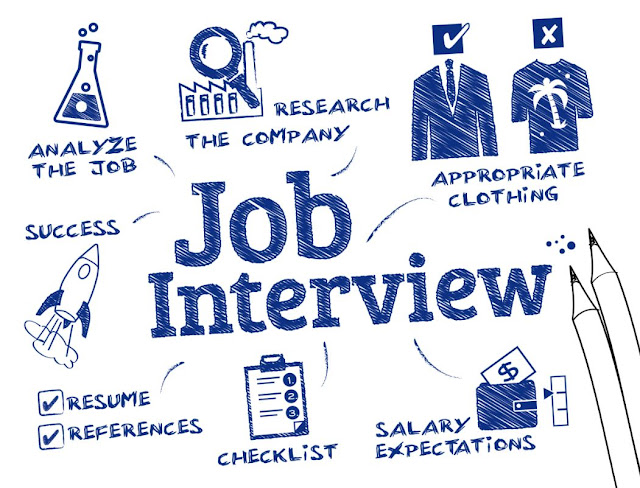Job Interview Testing Methods
Job interviews are pivotal stages in the recruitment
process, serving as gateways for candidates to demonstrate their skills,
qualifications, and cultural fit for a role. To discern a candidate's
suitability beyond a resume, organizations utilize diverse testing
methodologies during interviews. This article navigates through a variety of
job interview testing methods, shedding light on their intricacies,
effectiveness, and ethical considerations.
Understanding Job Interview Testing Methods
- Structured Interviews
These follow a predefined set of questions, aiming to gauge a candidate's specific competencies related to the job role. The structured format allows for consistent evaluation.
- Behavioral Interviews (Campbell et al, 1997)
These utilize the STAR technique—Situation, Task, Action, Result—to assess a candidate's past behavior in various scenarios, offering insights into their problem-solving abilities.
- Skills Assessments (Foster et al, 2017)
Technical tests and simulation exercises evaluate a candidate's proficiency in specialized areas or their ability to handle job-related tasks, providing practical insights beyond theoretical knowledge.
- Psychometric Assessments (Barrick & Mount, 1991)
Personality tests and cognitive ability assessments delve into a candidate's personality traits, motivations, and cognitive capabilities, aiding in predicting job performance.
- Panel Interviews (Chapman et al, 2005)
Involving multiple interviewers, panel interviews offer diverse perspectives and reduce individual biases in the evaluation process.
Effectiveness and Considerations
Each testing method carries distinct advantages and
considerations. While structured interviews ensure consistency, behavioral
interviews uncover a candidate's problem-solving abilities. Skills assessments
validate technical proficiencies, while psychometric assessments delve into
personality traits and cognitive abilities. Panel interviews offer varied
viewpoints but can be resource-intensive (Hausknecht et al, 2004).
Ethical and Legal
Considerations
Adherence to ethical guidelines and legal frameworks is
imperative. Fairness, non-discrimination, and candidate privacy are crucial
aspects (Gardner et al, 2010). Organizations must ensure testing methods do not
infringe on candidate rights and are relevant to the job role.
References
- Huffcutt & Arthur, 1994 available at www.psycnet.apa.org last access on 10th Nov 2023.
- Barrick, M. R., & Mount, M. K. (1991). The Big Five personality dimensions and job performance: A meta-analysis. Personnel Psychology, 44(1), 1-26.
- Campbell, J. P., McCloy, R. A., Oppler, S. H., & Sager, C. E. (1997). A theory of performance. Personnel Selection in Organizations, 35(1), 35-70.
- Chapman, D. S., Uggerslev, K. L., Carroll, S. A., Piasentin, K. A., & Jones, D. A. (2005). Applicant attraction to organizations and job choice: A meta-analytic review of the correlates of recruiting outcomes. Journal of Applied Psychology, 90(5), 928.
- Foster, G., Hertel, G., & Häusser, J. A. (2017). All's well that begins well: Exploring types of learning activities enhances newcomer adjustment. Personnel Psychology, 70(1), 75-111.
- Gardner, W. L., Cogliser, C. C., Davis, K. M., & Dickens, M. P. (2010). Authentic leadership: A review of the literature and research agenda. The Leadership Quarterly, 22(6), 1120-1145.


.jpeg)






Effective job interview methods are crucial for companies as they determine the right candidate for a role, impacting productivity and organizational success. In modern practice, management faces challenges such as bias, limited time, and evolving job market dynamics. Overcoming these hurdles ensures fair, efficient, and informed hiring decisions, contributing to a company's long-term growth and stability.
ReplyDeleteDear Asoka, we all hare having experience on interviews, your article adeptly explores diverse job interview testing methods, showcasing how each unveils unique facets of candidates while emphasizing ethical considerations crucial in evaluations.
ReplyDeleteHi Ashoka, Job interviews stand as pivotal stages in the recruitment process, providing candidates with gateways to showcase their skills, qualifications, and cultural fit for a role. To delve deeper into a candidate's suitability beyond what is presented on a resume, organizations employ diverse testing methodologies during interviews. This article navigates through a variety of job interview testing methods, shedding light on their intricacies, effectiveness, and ethical considerations.
ReplyDeleteIt's essential for organizations to prioritize fairness, non-discrimination, and candidate privacy in job interview testing methods, aligning assessments with job relevance and respecting ethical guidelines and legal frameworks.
ReplyDelete